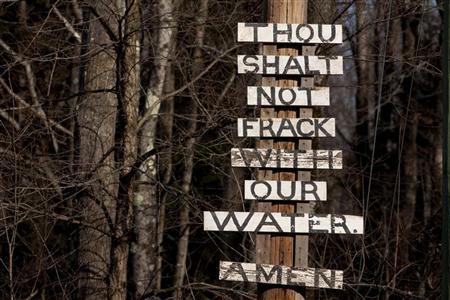Scottish Ministers are deliberately misleading the Scottish public by pretending that their objections to fracking are environmental rather than political, a leading expert has angrily stated. He has been backed up by Scottish Conservatives, who have accused the Scottish National Party of u-turning on fracking to ward off a Labour threat in the upcoming elections.
Professor Paul Younger, Rankine Chair of Engineering at the University of Glasgow, has said that the Scottish Parliament’s reasons for a moratorium on fracking “made up” and “completely feigned”, the Telegraph has reported.
Speaking on the BBC’s Sunday Politics, Prof Younger said that Scottish ministers had lavished praise upon a 98 page report written by his expert scientific panel last June, which concluded that fracking could be safely carried out in Scotland as there were no significant technological barriers. It said that fracking could deliver significant financial gains to Scotland, but that the best reserves were located in more populated areas.
After welcoming the report, the Scottish Government have since changed their mind, issuing a moratorium on the practice by contacting all Scottish councils and ordering them to dismiss any applications for unconventional oil or gas extraction. The move came just days after Jim Murphy, leader of the Labour Party in Scotland announced that, if successfully elected, he would use new powers granted to Holyrood to ban fracking.
Yesterday Stewart Maxwell, a senior SNP member of the Scottish Parliament told the Sunday Politics that more research was required before the practice could go ahead. He insisted that Prof Younger’s report did not provide all the evidence needed, but could not say what was missing.
Ineos, who own the petrochemical plant at Grangemouth which is currently posting a loss, nearly closing down in 2013, recently unveiled a £640 million plan to use fracking to return the plant “back into the premier league of energy”. Mr Maxwell insisted that the ban would not jeopardise the plant’s future.
He claimed that the public health impact was not addressed by the report, but when corrected by the interviewer who pointed out that in fact it is, changed his reasoning to say that many other experts disagreed with the reports findings.
“I don’t believe that the people of Scotland want us to just go ahead without listening to what they have to say,” he insisted, despite public consultation playing an important role in the plannign application process.
Prof Younger, a Fellow of the Royal Academy of Engineering and the author of more than 350 publications, was highly critical in his rebuttal. He said that the government had initially welcomed the report as “very thorough, very well done.” They said that “this is the sort of evidence base we’re looking for,” he told the Sunday Politics.
“All of a sudden, out of the blue, we start hearing about gaps and further things they need to look into on environment and health. I tell you what – it’s all made up. It’s pretendy [sic]
“This is completely feigned. It’s completely false and I just feel violated as a professional, having worked on that committee to suddenly be treated like a political football like this. It’s very, very degrading.”
Murdo Fraser, the Scottish Tory energy spokesman, said: “It’s absolutely clear that it’s all about politics and nothing about science.
“If we’re having an evidence-based approach, as we should be, and a science-led approach, as we should be, we should listen to the evidence and listen to the scientists. So this is all about politics. It’s because the Labour Party were pushing the SNP on this issue.”
A Scottish Government spokesman said its “moratorium and planned public consultation on unconventional oil and gas has received support from both industry and environmental NGOs – on either side of the debate.
“We have taken a cautious, considered and evidence-based approach to unconventional oil and gas and fracking.”

COMMENTS
Please let us know if you're having issues with commenting.